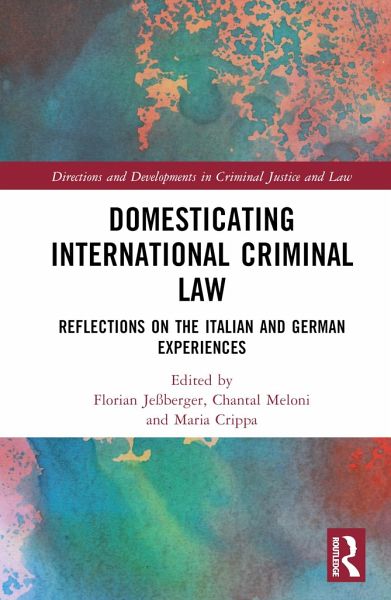
Domesticating International Criminal Law
Reflections on the Italian and German Experiences
Herausgeber: Jeßberger, Florian; Crippa, Maria; Meloni, Chantal
Versandkostenfrei!
Versandfertig in 1-2 Wochen
171,99 €
inkl. MwSt.
Weitere Ausgaben:

PAYBACK Punkte
86 °P sammeln!
This book provides an essential and critical overview of the most significant issues concerning the domestication of international criminal law, in particular with regard to the implementation of the ICC Statute.














